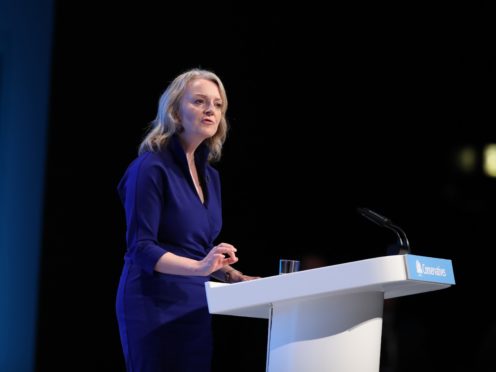The Government has responded to research claiming nearly half of artists are sexually harassed in the music industry, saying such “vile behaviour” must be stopped.
A petition drawn up by the Musicians’ Union was directed at Women and Equalities minister Liz Truss, urging greater protections for artists.
Research by the union claimed most victims of harassment fear speaking out due to a culture with few consequences for the perpetrators, and 85% did not report wrongdoing.

A survey of musicians found that 48% had suffered sexual harassment while they were at work.
The Musicians’ Union claims that most affected young artists end up quitting the industry while perpetrators face little recrimination, and called on the Government to introduce legislation to protect those making a living through music.
A Government Equalities Office spokeswoman responded: “Sexual harassment is appalling and it must be stopped.
“Our consultation on how the current laws can be improved closed at the beginning of this month, and we are carefully considering all of the responses we received.
“We proposed a number of measures to strengthen and clarify the law so that we can provide explicit protections to anyone who experiences this vile behaviour in the workplace.”
No-one should experience or fear sexual harassment, abuse, bullying or discrimination on campus or at work.
If you have, whatever your role in the music industry, you can report it in confidence to us → https://t.co/hn4OTnn7hE #fortheloveofmusic #stillmarching pic.twitter.com/Tpm8Vdqdrk
— Musicians' Union (@WeAreTheMU) October 22, 2019
More than half of surveyed musicians felt the culture of the industry was the greatest barrier to reporting any form of abuse. Around 60% felt that working on a freelance basis put them at greater risk, without the same safeguards available to those in fixed employment.
The Musicians’ Union called on Ms Truss to deliver safeguards for freelance workers in the industry to help stamp out abuse.
Naomi Pohl, deputy general secretary at the Musicians’ Union, previously stated: “We are aware of far too many cases of talented musicians, particularly young or emerging artists, leaving the industry altogether due to sexism, sexual harassment or abuse.
“Survivors are often unable to speak out because the consequences for their career or personal life are devastating.
“In most cases we’re aware of, the survivor ends up leaving the workplace or the industry and there are very few consequences for the perpetrator.”
A survey of 725 musicians was conducted by the 31,000-strong Musicians’ Union, with the research carried out by the union itself.
